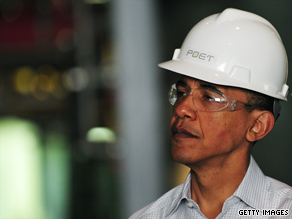 In his January 2014 State of the Union Address and thereafter, President Barack Obama has repeatedly mentioned apprenticeships and vocational education when discussing the jobs crisis. One might be critical as to why the nation’s first black president would advocate for a policy that has been historically exclusive and harmful to African Americans. In his autobiography, Malcolm X notes, when telling his middle school English teacher of his aspirations to be a lawyer, the teacher advised him to instead become a carpenter. To Malcolm, this was in stark contrast to the overwhelmingly affirming advice he gave to less-promising white students. Malcolm X’s case was not an aberration, but reflected a general trend of structural and systemic discrimination that operated through vocational education programs (where African Americans were tracked into lower-paying jobs) and apprenticeships. This history involved reifying and reinforcing class divisions along racial lines. Apprenticeships can be problematic in that often they are awarded to relatives or friends who share the same racial background as the master technician. As many have noted, white social networks often function to exclude African Americans from potential jobs.
In his January 2014 State of the Union Address and thereafter, President Barack Obama has repeatedly mentioned apprenticeships and vocational education when discussing the jobs crisis. One might be critical as to why the nation’s first black president would advocate for a policy that has been historically exclusive and harmful to African Americans. In his autobiography, Malcolm X notes, when telling his middle school English teacher of his aspirations to be a lawyer, the teacher advised him to instead become a carpenter. To Malcolm, this was in stark contrast to the overwhelmingly affirming advice he gave to less-promising white students. Malcolm X’s case was not an aberration, but reflected a general trend of structural and systemic discrimination that operated through vocational education programs (where African Americans were tracked into lower-paying jobs) and apprenticeships. This history involved reifying and reinforcing class divisions along racial lines. Apprenticeships can be problematic in that often they are awarded to relatives or friends who share the same racial background as the master technician. As many have noted, white social networks often function to exclude African Americans from potential jobs.
Tag Archives: employment discrimination
Storytelling and the Myth of Reverse Discrimination
On occasion, I find myself engaged in a conversation with a complete stranger—in an airport, on the bus, or in a bar. More often than not this stranger is demographically similar to me, white, college educated, and male. These discussions generally start off with greetings, introductions, and a conversation about what each party does for a living. Once the stranger learns that I am a sociologist who studies labor markets, work, and organizations, I can be fairly certain that the topic of race, employment, and Affirmative Action will soon ensue.
The squeeze on middle-aged women: a new pattern to lookism?
With battles won over sex and race discrimination in the past, and more recently over disability and sexual preference, it may be that lookism becomes the next frontier in the battle against employment discrimination. Studies on both sides of the Atlantic have revealed both a beauty premium and a beauty penalty. Workers perceived to be better looking are more likely to be hired, to turn in better workplace performances, receive better pay and have better career prospects. Conversely those workers perceived to be average or worse looking receive less pay, are regarded as poorer performers, have more stunted careers and are more likely to lose their jobs.
Over the past few months, British media types have been convulsed in a debate about lookism. It started when a columnist in the Daily Mail newspaper, Quentin Letts, commented derogatively on the looks of a 60 year old female government minister. She was, Letts admitted, good looking for her age but because of the glop that she slapped onto her face at night.